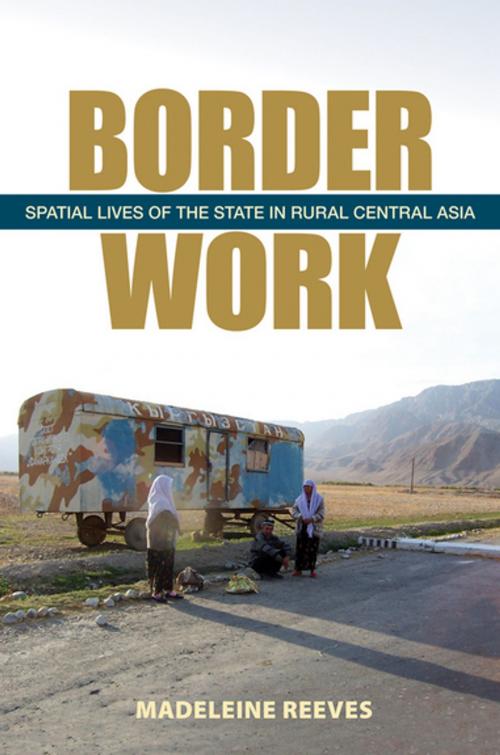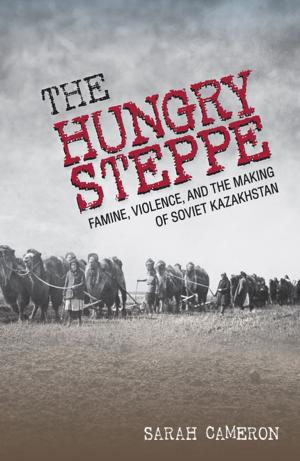Border Work
Spatial Lives of the State in Rural Central Asia
Nonfiction, History, Asian, Asia, Social & Cultural Studies, Social Science, Anthropology| Author: | Madeleine Reeves | ISBN: | 9780801470882 |
| Publisher: | Cornell University Press | Publication: | April 15, 2014 |
| Imprint: | Cornell University Press | Language: | English |
| Author: | Madeleine Reeves |
| ISBN: | 9780801470882 |
| Publisher: | Cornell University Press |
| Publication: | April 15, 2014 |
| Imprint: | Cornell University Press |
| Language: | English |
In Central Asia's Ferghana Valley, where Kyrgyzstan, Uzbekistan, and Tajikistan meet, state territoriality has taken on new significance in these states' second decade of independence, reshaping landscapes and transforming livelihoods in a densely populated, irrigation-dependent region. Through an innovative ethnography of social and spatial practice at the limits of the state, Border Work explores the contested work of producing and policing "territorial integrity" when significant stretches of new international borders remain to be conclusively demarcated or effectively policed.Drawing on extensive ethnographic fieldwork, Madeleine Reeves follows traders, farmers, water engineers, conflict analysts, and border guards as they negotiate the practical responsibilities and social consequences of producing, policing, and deriving a livelihood across new international borders that are often encountered locally as "chessboards" rather than lines. She shows how the negotiation of state spatiality is bound up with concerns about legitimate rule and legitimate movement, and explores how new attempts to secure the border, materially and militarily, serve to generate new sources of lived insecurity in a context of enduring social and economic inter-dependence. A significant contribution to Central Asian studies, border studies, and the contemporary anthropology of the state, Border Work moves beyond traditional ethnographies of the borderland community to foreground the effortful and intensely political work of producing state space.
In Central Asia's Ferghana Valley, where Kyrgyzstan, Uzbekistan, and Tajikistan meet, state territoriality has taken on new significance in these states' second decade of independence, reshaping landscapes and transforming livelihoods in a densely populated, irrigation-dependent region. Through an innovative ethnography of social and spatial practice at the limits of the state, Border Work explores the contested work of producing and policing "territorial integrity" when significant stretches of new international borders remain to be conclusively demarcated or effectively policed.Drawing on extensive ethnographic fieldwork, Madeleine Reeves follows traders, farmers, water engineers, conflict analysts, and border guards as they negotiate the practical responsibilities and social consequences of producing, policing, and deriving a livelihood across new international borders that are often encountered locally as "chessboards" rather than lines. She shows how the negotiation of state spatiality is bound up with concerns about legitimate rule and legitimate movement, and explores how new attempts to secure the border, materially and militarily, serve to generate new sources of lived insecurity in a context of enduring social and economic inter-dependence. A significant contribution to Central Asian studies, border studies, and the contemporary anthropology of the state, Border Work moves beyond traditional ethnographies of the borderland community to foreground the effortful and intensely political work of producing state space.















